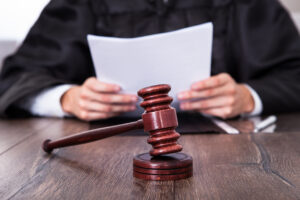
Facing a criminal charge in Florida can be overwhelming. You might worry about possible jail time, fines, or other serious penalties. One way many criminal cases are resolved—particularly those that don’t go to trial—is through a plea deal (also called a plea bargain). This arrangement between the defense and prosecution involves trading a guilty or no contest plea for certain concessions, such as reduced charges or lighter sentences.
Below is a helpful overview of how plea deals typically work in Florida, their benefits and drawbacks, and what you should keep in mind before accepting one as a defendant.
Plea Deals Under Florida Law

When you’re charged with a crime, the prosecution must prove your guilt beyond a reasonable doubt if the case goes to trial. However, trials can be expensive, time-consuming, and risky for both sides. That’s why prosecutors often propose plea deals—essentially an agreement where you plead to certain charges. In exchange, the state either drops or reduces some charges or recommends a more lenient sentence.
Plea deals vary widely in scope, depending on details like:
- The seriousness of the crime
- Your prior criminal record
- Evidence strength on both sides
- Any mitigating or aggravating factors
Ultimately, Florida judges still need to sign off on a plea deal, ensuring it aligns with legal requirements and doesn’t violate public interest. Typically, the court will verify that you fully understand the agreement and are entering it voluntarily.
What Should I Do if I’m Offered a Plea Deal in Florida?
If the state proposes a plea bargain, think carefully before accepting. Consider these steps:
- Gather the facts: Review the evidence against you with a lawyer. The prosecution’s case strength can guide whether a deal is wise or if trial might offer a better outcome.
- Consider all consequences: A guilty or no contest plea leads to a criminal record. Even if the deal keeps you out of jail now, it might harm your future job or education prospects.
- Evaluate sentencing options: If the offer includes probation, fines, or a reduced felony charge, assess the short- and long-term impact. Sometimes avoiding a felony conviction is the biggest advantage of a plea.
- Compare with trial risks: Going to trial can be risky if the evidence is strong, but if your lawyer sees major weaknesses in the prosecution’s case, trial might be worth considering.
- Stay calm: Don’t let fear push you into a bad agreement. Prosecutors might pressure you to plead quickly, but you’re entitled to a full understanding of your options.
From here, it’s wise to speak with a Lakeland criminal defense attorney before making a decision. An experienced lawyer can provide insight into the deal’s pros and cons, clarify the legal language, and, if needed, negotiate for better terms.
Why Plea Deals Can Be Beneficial
Efficiency is one reason both sides might favor a plea deal. For prosecutors, it lightens the docket by avoiding a lengthy trial. For defendants, a plea may reduce charges—like dropping a felony down to a misdemeanor—or result in a significantly lighter sentence than a conviction at trial. This way, you avoid the stress of a public courtroom battle, and the outcome is more predictable.
Cost is another factor. Trials can get expensive due to attorney fees, expert witnesses, and extended court appearances. Pleading early may minimize expenses, letting you move on faster. Also, if there’s strong evidence against you, accepting a fair deal could keep you from harsher penalties.
Potential Downsides of Plea Deals
Not every plea deal works out to the defendant’s advantage. There are risks and disadvantages:
- You waive certain rights: By not going to trial, you give up the chance to challenge evidence fully or have your case decided by a jury.
- Criminal record: Even a reduced charge is still a conviction, which can affect future employment, housing, or licensing.
- Pressure and haste: You might feel rushed or intimidated, leading to decisions you later regret if you didn’t review all alternatives.
- Hidden consequences: A lesser charge might still bring deportation risks (for non-citizens) or other collateral problems not stated upfront.
Because of these pitfalls, consulting a defense attorney is essential. They can identify if the offer is truly in your best interest or if better terms can be negotiated.
Contact a Lakeland Criminal Defense Attorney for a Free Consultation
If you’re under criminal investigation or already facing charges in Florida, you could soon receive a plea deal offer. But deciding whether to accept can be complicated. A well-advised choice might keep your future open, while a bad plea might create long-term issues. To ensure you fully understand the deal, talk to a trusted lawyer for guidance. Contact an attorney at Thomas C. Grajek, Attorney At Law, today to schedule a consultation. You can all call us at (863) 688-4606.
Consulting a Lakeland criminal defense attorney for a free consultation can put your mind at ease. You’ll learn your rights, get an honest opinion on your case, and make an informed decision.
Visit Our Criminal Defense Law Firm in Polk County, FL
Thomas C. Grajek, Attorney At Law
112 E Poinsettia St Lakeland, FL 33803
(863) 688-4606

